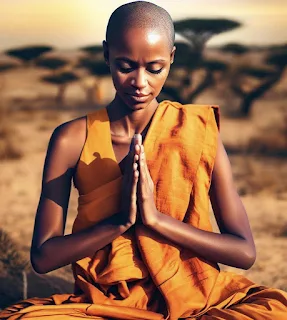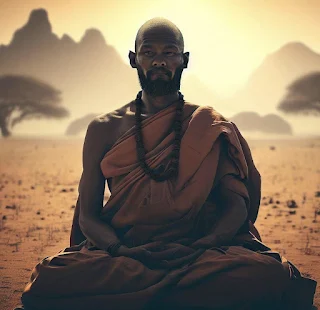The First Buddhists in Africa — Railway Roots and Korean Zen Connections
The First Buddhists in Africa — Railway Roots & Korean Zen Connections
Buddhism arrived in Africa far later than Christianity or Islam. Yet, in just a century, the tradition has taken root — evolving into a uniquely African expression influenced not only by South Asian migration, but by modern Korean Zen teachings.
This is the story of how Asian railway workers introduced Buddhism to East Africa in 1925 and how African and Korean teachers now lead a new era of Buddhist practice on the continent.
How Buddhism First Reached Africa
In 1925, the British Empire began constructing a railway system in what is now Tanzania, linking Dar es Salaam to Morogoro and Tabora. To power this ambitious project, the British recruited thousands of workers from India, Sri Lanka, and Southeast Asia — regions with long-established Buddhist identities.
Among these migrants were Buddhist laborers who brought their beliefs, meditation practices, and traditions to East Africa. They built small shrines near the camps, marking the first recorded Buddhist presence in Africa.
Life in Early Buddhist Railway Communities
Living conditions were demanding: long hours, isolation, and unfamiliar terrain. Yet Buddhist workers preserved their spiritual routines by:
- Building makeshift shrines
- Keeping meditation practice alive
- Celebrating religious days
- Sharing stories + teachings
These practices slowly introduced Buddhism to nearby communities, transforming remote industrial settlements into centers of cultural exchange.
Korean Zen Arrives Much Later
While Buddhism first arrived from South Asia, Korean Seon (Zen) Buddhism would later become influential in shaping modern African Buddhist communities.
Korean Zen emphasizes:
- Simple daily practice
- Direct experience through meditation
- Community-based learning
These approaches resonate strongly with African practitioners seeking mindfulness outside traditional religious structures.
Modern African Buddhist Leaders
- Ven. Bhante Buddharakkhita — Founder, Uganda Buddhist Centre (2005)
- Ven. Dhammarakkhita — South African monk
- Zen Master Bon Yeon — South African–born teacher trained in Korean Seon
These leaders show how Buddhism is no longer only imported — it is being shaped from within.
Explore Korean–African Cultural Connections
Why This History Matters
Buddhism’s African journey reveals how cultures meet, change, and coexist. What began with railway workers has expanded into a global spiritual exchange where African experience and Korean Zen now intersect.
FAQ — Buddhism in Africa
When did Buddhism first come to Africa?
In 1925, via Asian railway workers in Tanzania.
Is Korean Buddhism practiced in Africa?
Yes — especially meditation taught through Zen-inspired centers.
Are there African-born Buddhist teachers?
Yes. Examples include Bhante Buddharakkhita and Zen Master Bon Yeon.









